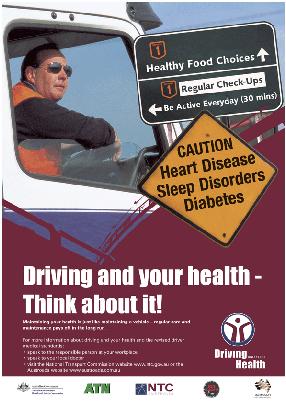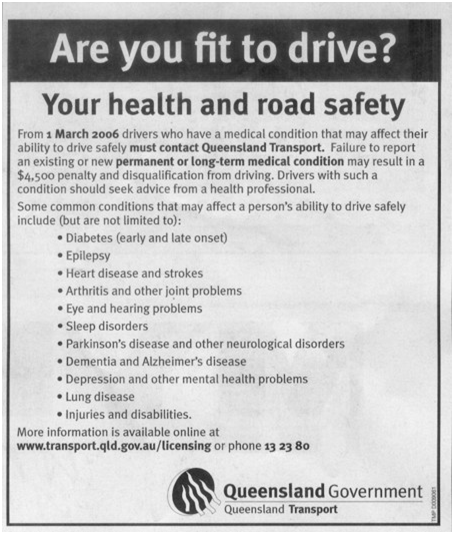Are You Fit To Drive?
Driving while suffering from the effects of a 'sleep disordered breathing' condition is extremely dangerous.
Scientific tests (using electro encephalographs and driving simulators) show that sufferers of SDB experience performance impairment similar to drivers with illegal blood alcohol levels. As a result, SDB sufferers are up to 7 times more likely to be involved in a motor vehicle accident than a 'healthy' sleeper.
Research studies have found that sleep conditions are factors in almost a third of all serious accidents. One study found a total of 24,318 deaths from accidents related to sleepiness. There were also 2,474,430 disabling injuries resulting from accidents where the decreased mental efficiency and attentiveness due to sleep loss was the major underlying factor. These figures were for a single year.
|
The Austroads Guidelines for Drivers are summarised as follows: Patients suspected of having sleep apnoea or another sleep disorder: Doctor should warn about potential effects on road safety; patient not to drive if sleepy. High risk patients (e.g., those with severe daytime sleepiness, especially while driving, with history of motor vehicle crashes or near misses due to inattention or sleepiness). Referral to a sleep disorder treatment specialist. Patients with moderate or severe sleep apnoea syndrome and significant driving risk do not qualify for an unconditional driving licence unless promptly and successfully treated. Commercial drivers with sleep apnoea syndrome can continue to drive, but require proof of successful treatment and compliance, and annual review by a sleep disorder specialist. |
|
It is a legal requirement in all Australian States and Territories to report any illness or condition which is likely to affect your ability to drive safely. Sleep Disordered Breathing (SDB) is one of these conditions. Hefty fines plus licence disqualification apply for people who fail to report their condition to licencing authorities.
It is also against the law to attempt to drive while suffering from sleep or other disorders which can impair your ability to react quickly and fully to circumstances.
|
|
Legal judgements have shown that drivers will be held responsible for the results of their impaired driving. Drowsiness or lack of concentration as a result of a sleep disorder is not a defence. Treatment Is Available If you snore, or if you know someone who does, take action. Snoring is always a symptom of an existing or developing sleep disorder -- but treatment is available. |
For more information, call Sleep Clinic Services on 1300 246 637 or complete the form below. One of our Treatment Coordinators will be in touch as soon as possible to answer your questions.
Our Sleep clinics are available in all of Australia's regions, from capital cities to mining camps and remote rural properties.


